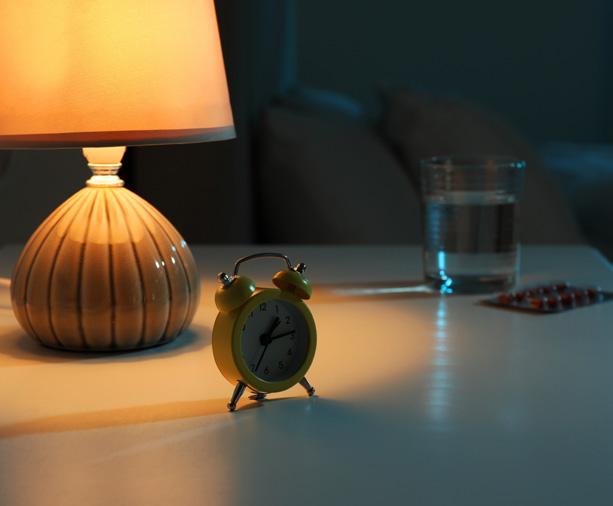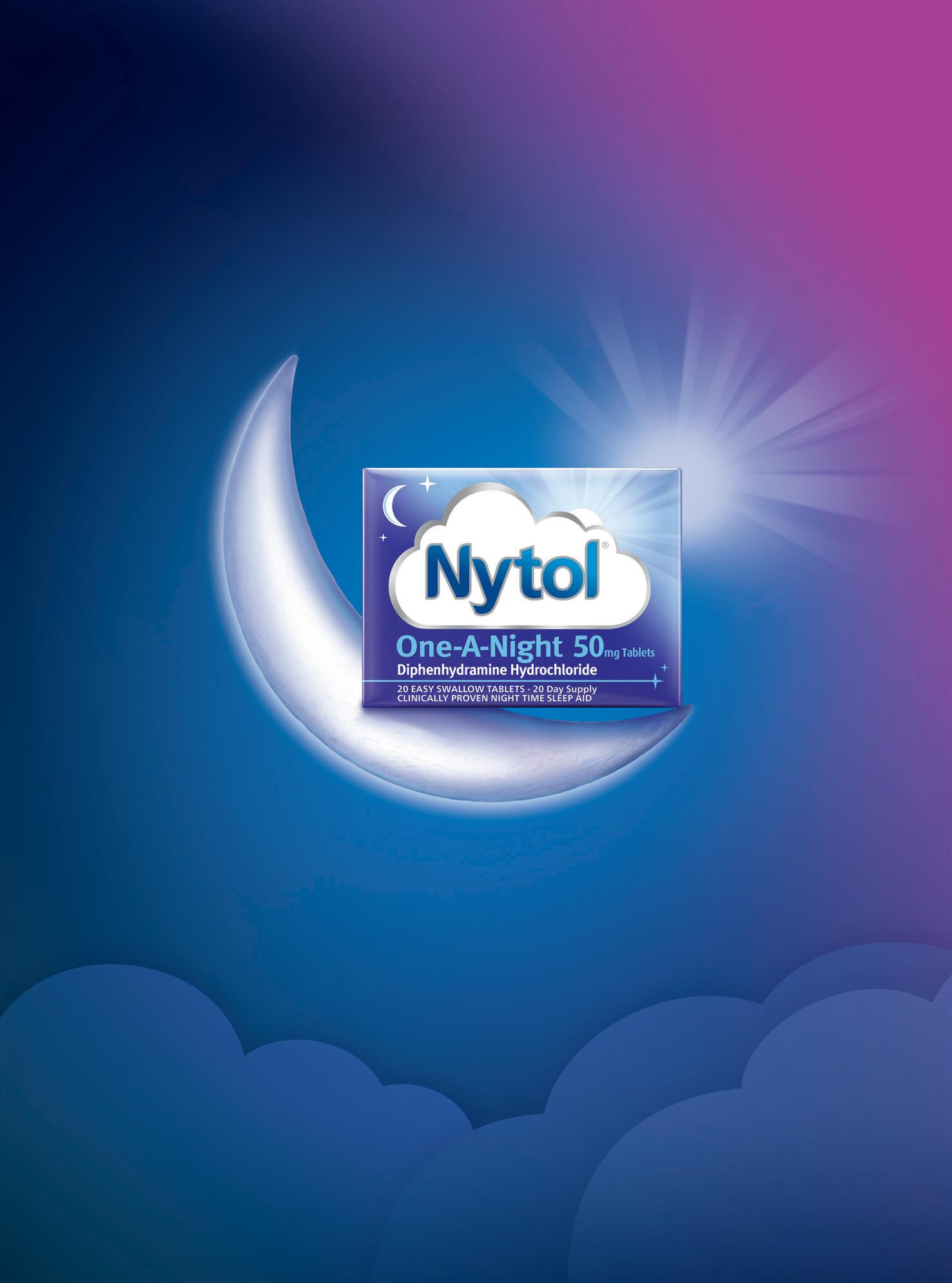Topic Team Training – Sleep Disorders
Following on from the October issue Continuing Professional Development on the Pharmacy Role in Sleep Disorders, this 5-Minute Learning Module is designed to enhance the community pharmacy team understanding and ask further questions as to how you can support and advise patients.
After completing this team session, pharmacy staff should be able to: Recognise the main types of sleep disorders seen in community practice; Offer safe, evidence-based self-care advice and understand when referral is required; Review medicines that may worsen or improve sleep and, Support responsible use, monitoring, and deprescribing of hypnotics.
A community pharmacy environment that fosters teamwork ensures high levels of consumer satisfaction. This series of articles is designed for you to use as guide to assist your team in focusing on meeting ongoing CPD targets and to identify any training needs in order to keep the knowledge and skills of you and your team up to date.
The below information, considerations and checklist provide support to enable you to run a team training session and identify opportunities for learning within the topic of Sleep Disorders.
Sleep is a universal human need— vital for physical and mental wellbeing. Yet around one in three adults in Ireland reports poor sleep, and up to 45% of people globally will experience a sleep
Consider:
disorder during their lifetime. The impact is wide-ranging: fatigue, reduced work performance, higher accident risk, and links with chronic illness and mental health conditions.
Contributing factors
Lifestyle: caffeine, alcohol, nicotine, irregular schedules, screen time before bed.
Medical: pain, depression, anxiety, respiratory disease, cardiovascular disease.
Medication-related: stimulants, corticosteroids, SSRIs, decongestants, beta-blockers.
Demographic: older age, women (especially during pregnancy and menopause), shift work.
Encourage staff to consider these factors when engaging with patients.
Non-Pharmacological Management
Behavioural approaches remain the first-line strategy for managing sleep disorders and should be reinforced during every pharmacy consultation. Good sleep hygiene forms the foundation of effective sleep health. Patients should be encouraged to keep consistent
Am I/my team aware of the licensed indications, maximum recommended duration of treatment, doses and age limitations for OTC products used for the various types of sleep disorders?
Am I/my team aware of the medicines that can cause some sleep disorders, such as insomnia?
bedtimes and wake times, even on weekends, to help stabilise their body clock. They should avoid caffeine, alcohol, and nicotine later in the day, as these can all interfere with sleep onset and quality. Limiting exposure to electronic screens before bedtime is also important, since the blue light emitted by phones, tablets, and televisions can suppress melatonin and delay sleep. Creating a restful environment is essential: bedrooms should be kept cool, quiet, and dark, and used only for sleep or intimacy. Regular physical activity can promote better sleep, but it is best scheduled earlier in the day rather than close to bedtime.
Cognitive Behavioural Therapy for Insomnia (CBT-I) is regarded as the gold standard treatment for chronic insomnia. It focuses on the thoughts and behaviours that perpetuate poor sleep, using techniques such as stimulus control, sleep restriction, and cognitive restructuring. Increasingly, digital CBT-I programmes and mobile applications make this therapy more accessible, and pharmacists are well placed to signpost patients towards reputable, evidence-based platforms.
Pharmacological Options
Benzodiazepines such as temazepam and the related “Z-drugs” zopiclone and zolpidem can be effective for short periods. Melatonin may be useful in circadian rhythm disorders but should be initiated by a GP to ensure appropriate dosing
Key Points:
Ensure the pharmacy team knows to be sensitive in dealing with customers who may feel vulnerable as a result of insomnia
Ensure pharmacy staff understand the function and importance of sleep and what effect a lack of sleep has on overall health
Ensure we are all aware of how much sleep is enough for different groups of people
Promote training and education as to the types of sleep disorders and their possible causes
Educate the pharmacy team on how OTC treatments, including herbal remedies, differ
and timing. Over-the-counter sedating antihistamines may also provide short-term relief of sleep difficulties for some individuals. In RLS, dopamine agonists like ropinirole or pramipexole and gabapentinoids such as gabapentin or pregabalin may be prescribed, while iron supplementation is essential when ferritin levels fall below 75 µg/L. Treatment for obstructive sleep apnoea, such as continuous positive airway pressure (CPAP) or wake-promoting agents, should remain under specialist supervision. Pharmacy teams should always emphasise correct use, appropriate duration, and safety precautions—especially regarding alcohol intake and driving impairment.
Pharmacist-Led Actions
Community pharmacists play a central role in identifying, advising, and supporting patients with sleep problems. They should use brief, structured screening tools such as the Epworth Sleepiness Scale for OSA or the Insomnia Severity Index to help assess symptoms and guide advice. During medication reviews, pharmacists should remain alert for medicines that may contribute to insomnia, suggest safer alternatives where possible, and optimise timing of doses to reduce disruption to sleep. When dispensing hypnotics, pharmacists must reinforce shortterm use, monitor for side effects, and discuss dependency risks.
Appropriate referral is important — patients with persistent insomnia, suspected OSA, or underlying mental health issues should be directed to their GP for assessment, with specialist sleep clinics such as those in Beaumont, Tallaght, Cork, or Galway providing further diagnostic support.
Actions:
Ensure support staff understand the following key points:
The common causes of insomnia, including lifestyle issues, medication and conditions that can cause sleep issues
How to spot sleep disorders and insomnia in both colleagues and customers to get them the help they need
The benefits and limitations of OTC medicines
The importance of good sleep hygiene for everyone
LP YOU GET A GOOD NIGHT’S SLEEP
*Based on IQVIA sales data MAT 05/2025. Nytol One-A-Night 50 mg Tablets contains diphenhydramine hydrochloride. A symptomatic aid to the relief of temporary sleep disturbance in adults. Adults: One tablet to be taken 20 minutes before going to bed, or as directed by a physician. Do not exceed the maximum dose of one tablet in 24 hours. Elderly patients or patients with liver or kidney problems should consult their doctor before taking this medicine. Children under 18 years: Not recommended. The product should not be taken for more than 7 days without consulting a doctor. Contraindications: hypersensitivity to the active substance or to any of the excipients, stenosing peptic ulcer, pyloroduodenal obstruction, phaeochromocytoma, known acquired or congenital QT interval prolongation, known risk factors for QT interval prolongation. Special warnings and precautions: pregnancy/lactation, renal and hepatic impairment, myasthenia gravis, epilepsy or seizure disorders, narrow-angle glaucoma, prostatic hypertrophy, urinary retention, asthma, bronchitis, COPD. Patients should be advised to promptly report any cardiac symptoms. Tolerance and / or dependence may develop with continuous use. Do not take for more than 7 consecutive nights without consulting a doctor. Should not be used in patients currently receiving MAO inhibitors (MAOI) or patients who have received treatment with MAOIs within the last two weeks. Use in the elderly should be avoided. Avoid concomitant use of alcohol or other antihistamine-containing preparations. Do not drive or operate machines. Cases of abuse and dependence were reported in adolescents or young adults for recreational use and/or in patients with psychiatric dis-orders and/or history of abuse disorders. Contains lactose. May suppress the cutaneous histamine response to allergen extracts and should be stopped several days before skin testing. Interactions: Alcohol, CNS depressants, MAO inhibitors, anticholinergic drugs (e.g. atropine, tricyclic antidepressants), metoprolol and venlafaxine, CYP2D6 inhibitors, Class Ia and Class III anti-arrhythmics. Side effects: dry mouth, fatigue, sedation, drowsiness, disturbance in attention, unsteadiness, dizziness, thrombocytopenia, hypersensitivity reactions, confusion, paradoxical excitation, convulsions, headache, paraesthesia, dyskinesias, blurred vision, tachycardia, palpitations, thickening of bronchial secretions, gastrointestinal disturbance, muscle twitching, urinary difficulty, urinary retention. Product not subject to medical prescription. PA1186/016/001. MAH: Chefaro Ireland DAC. The Sharp Building. Hogan Place. Dublin 2. Ireland. Date of preparation: Nov. 2023. SPC: https://www.medicines.ie/medicines/nytol-one-a-night-50-mg-tablets-34889/spc MAT-10247







